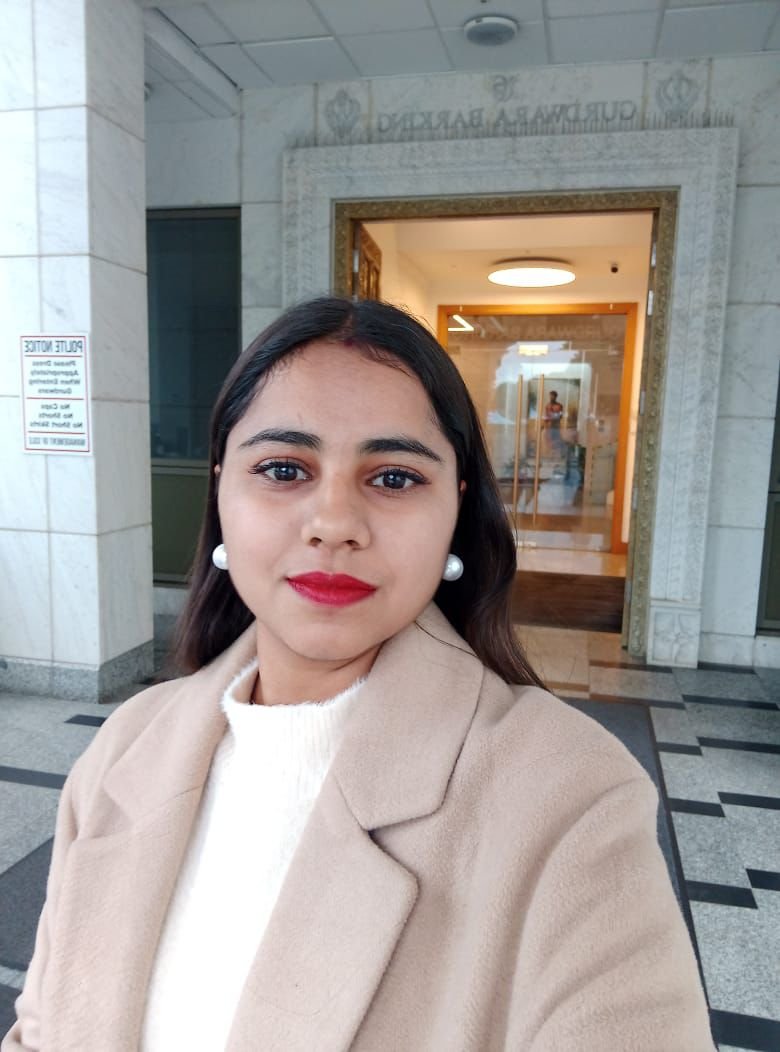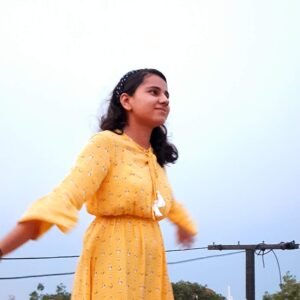Harshita Brella – Part 1
(The story has been narrated by her sister, Sonia Brella)
The marriage proposal came through some of my mother’s relatives, who had known Pankaj Lamba’s uncle and aunt for over 15 years. We conducted basic background checks and found everything to be in order. Based on our initial inquiries, we were assured that Pankaj’s family was respectable and financially stable. At that time, Pankaj was in the UK, pursuing a one-year diploma. We were also told that he had secured a placement in a company.
The wedding took place on 22nd March 2024 at a large farmhouse. We spared no effort to make my sister’s wedding grand. Pankaj came to India on 21st March and flew back to the UK just two days after the wedding, on 24th March. My sister joined him there on 30th April and started a job on 10th May. That’s when things began to change for the worse.
Pankaj began making unreasonable demands:
“Work extra hours. Alongside your job, you also need to manage all the household chores.”
“Give your cards to me. I want access to the cash.”
He used to check her salary slips and bank accounts. He even forbade her from interacting with other Indians, claiming, “Indians here are not good,” as if he was trying to hide something or control her. My sister avoided contact with any Indians except during her office hours. The conditions at the place where she worked overtime were harsh and exploitative. Yet, she kept all of this to herself and never shared her struggles with us.
The incident of domestic violence took place on 29th August 2024. Here in India, it was 5 a.m., and there it was 12:30 a.m. in UK. Pankaj beat my sister black and blue. “If you want to escape, jump out of the window,” he had said coldly.
Somehow, she managed to unlock the door and run to the neighbours for help. Coincidentally, they were Indian — which seemed to rattle Pankaj. She asked them for the keys to the main entrance so she could get away. In desperation, she called one of her co-workers — a woman older than her — at around 1 a.m. Thankfully, she answered on the first ring. My sister asked if she could come stay with her. The woman agreed immediately and set out to pick her up. Her house was just 5–10 minutes away by car.
Meanwhile, Pankaj hadn’t stopped. He was chasing her, hurling abuses at the top of his lungs. Then, a British passer-by shouted, asking what was going on. That interruption made Pankaj hesitate, giving my sister a crucial chance to escape and widen the gap between them. All of this unfolded on the open street.
Amidst the chaos, my sister also managed to call our father. He urged her to call the police and stay on the call with him. A few minutes later, the woman arrived and took my sister with her. Our father then spoke to her and requested that she take care of my sister until she recovered from shock.
The following day, on 30th August, my sister went to the police station to file a formal complaint. Multiple charges were filed against Pankaj, including rape, domestic violence, social abuse, and other offenses. While she was at the station, she received a notification on her phone. To her shock, she discovered that her entire bank account had been wiped off, leaving behind only a few pennies. A fraud case was subsequently registered by the bank officials.
She was temporarily placed in a hotel and provided with basic clothing, food, and hygiene essentials. As if the trauma she had already endured wasn’t enough, she soon suffered a miscarriage—an outcome directly linked to the physical abuse she had experienced. Her health deteriorated severely. She required medical check-ups every alternate day and was left physically fragile and emotionally shattered.
Later, she was moved to a shelter home designated for women who had survived domestic violence. Although the house was spacious, it was eerily empty—there were no guards, only security cameras. Already grappling with trauma, my sister found it incredibly difficult to live there alone. She was so fearful that even going to the washroom by herself was daunting. We stayed connected through video calls, just to give her the strength to endure that isolating phase.
On 13th September, her sister-in-law, Uma, called from India and threatened her, demanding that she withdraw the case. To our utter disbelief, Pankaj was also part of the conference call—despite being out on bail under strict conditions prohibiting any form of contact with my sister or proximity to her. Unfortunately, this wasn’t an isolated incident. Just a day later, on 14th September, his family showed up at our home and issued further threats, attempting to intimidate us into dropping the case.
My sister, innocent and kind-hearted, even tried to withdraw the case. But the police refused, suspecting that she might be acting under pressure. They rightly argued—what if the accused truly deserved to be held accountable? Both she and Pankaj were strictly advised to stay away from each other. From 20th September 2024, they began living separately.
Then, on 13th October, without informing us, Pankaj quietly paid the fine imposed on him. We only found out later through the police and media coverage. By then, the case had already gained public attention. His actions only reinforced his guilt.
From 20th October onward, Pankaj resumed calling her frequently, again violating the rules.
“I need to repay a friend, send me money.”
“I need groceries.”
“I need to fill petrol, give me some money.”
My sister didn’t refuse. He was manipulating her emotionally and financially. Over time, she ended up transferring nearly 5 to 6 lakh rupees to him.
On 10th November 2024, I spoke to her over the phone. Everything felt normal—she was cooking and was chatting away, like always. I had no idea it would be the last time I’d ever hear her voice. Everything shattered after that.
You may also like...
-
Bihar
Abhilasha Gupta
-
Odisha
Priyanka Mohapatra
-
Odisha
Panchanan Mishra
-
Maharashtra
Shivangi Mishra and Dixita Pal









